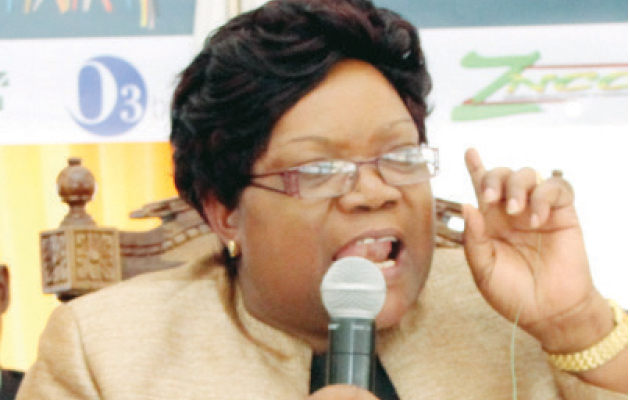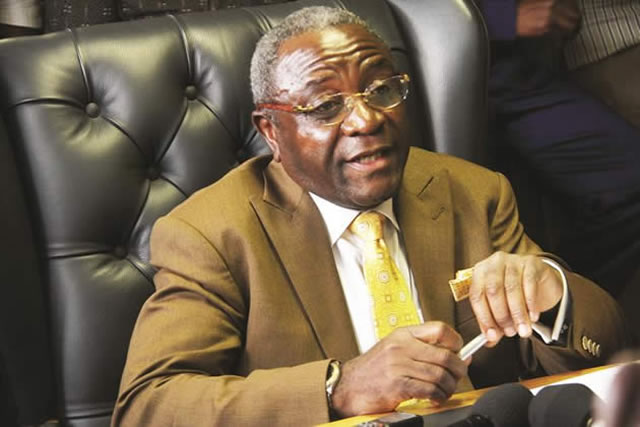Women played an equal, pivotal role in the war of liberation

Vaidah Mashangwa
RIGHTLY, the indigenous owners of Africa are the black people. The fact that the African people despite their origins should unite is long overdue. Black people are hard working and have this unique determination. Some other predator nations have tried to thwart the efforts that black people make in terms of their emancipation from colonialism and imperialism.
This is the reason why Reverend Martin Luther King Junior said, “I have a dream that one day my four children will not be judged by the colour of their skin, but the content of their character.”
It was this determination that men and women in Zimbabwe then Rhodesia took up arms to liberate themselves. Brave men and women fought side by side as equals during the war.
The then leader of the Zanla female cadres, Cde Joice Teurai Ropa Mujuru (now Vice President) declared in 1978 in her address at the Eighth Congress of the Women’s Union in Albania that: “Women comrades are represented at every level of our organisation from the National Executive through the Central Committee, High Command, General Staff down to every level of the Zanla forces.”
Indeed there was massive women’s contribution to the struggle including the works of the spirit medium Mbuya Nehanda who the colonial government incarcerated and executed for allegedly participating in the resistance movement against them at the close of the 19th century.
It is documented that Zanla women drew a lot of inspiration from Mbuya Nehanda, what is worrying is that during Cde Teurai Ropa’s address referred to above, she went on to mention that, “… to be fair, however, we owe a lot to our progressive male comrades who have stood by us, fought for our rights, allowed us the degree of freedom to contribute to the best of our abilities for the national course.”
The statement already indicated that women in the struggle still viewed men as superior to them and that whatever emancipation the women had was a result of men’s struggle. In her book For Better or Worse, Women and Zanla in Zimbabwe Liberation Struggle, Josephine Nhongo-Simbanegavi outlined that an interview with a female ex-guerrilla revealed that women engaged in transporting war material until 1973 when they demanded some training in self protection as their duties exposed them to enemy attacks. Why did the women go to an extent of demanding training yet this is the reason why they had gone to war in the first place?
Similarly, a former commander interviewed by one researcher said it was traditional that men should be obeyed by women and that it was only when discipline was good that women began to feel not only equal to men but the same as men.
Though after the war, the late Cde Julia Zvobgo became treasurer of the newly formed Zimbabwe National Women’s Organisation and also Cde Mujuru an executive member of the Zanu-PF Women’s League later became Minister of Women’s Affairs as well as Cde Sally Mugabe who was deputy secretary of Zanu-PF Women’s League, when interviewed they gave different accounts on the position of women compared to men in the armed struggle.
One area they differed on was the conditions that the expectant mothers were exposed to at Osibia Camp. Some ex-guerillas interviewed after the war pointed out that the only difference between men and women in the armed struggle was that men were better trained in the use of the arms than women. Some said that most women joined the struggle in the 1970s and by that time more men were already in positions of authority. Views of informants or interviewees however varied in accordance to age, literacy and educational level.
Suffice to say that during the armed struggle, the pre-existing divisions of labour between men and women were preserved and reinforced. The patriarchal notion of men as protectors and women as the protected was effectively used in shaping gender roles in the unfolding guerilla war, and these social arrangements were generally acceptable to both men and women. Moreover women by then also received very little formal education. Parents preferred to send boys to school and as a result, the gender based disparities remained unchallenged.
During the negotiations for peace at Lancaster House, the Zanu component of the Patriotic Front (PF) was entirely male. The Zanla leaders who came into Zimbabwe to liaise with the Commonwealth Monitoring Troops to get the fighters into assembly points were also all male except one woman who was reported to be present by the press. The media also used the term, “The return of boys from the bush” emphasising the male component and their involvement in the war and excluding women fighters from the limelight.
In its election manifesto, released on January 25,1980, Zanu-PF declared that under a Zanu-PF government, women will enjoy equal rights with men in all spheres of political, economic, cultural and family life. The Zimbabwe constitution drawn up at Lancaster House had also included the same statements. When the Zanu-PF government came into power in April 1980, out of the 57 seats it secured in parliament women won five. These women, out of a total of 80 candidates were the only women the party had fielded for the elections.
On the PF-Zapu side, three women were among the party’s 20 candidates who succeeded in gaining parliamentary seats in the elections.
All in all, this meant that eight percent of the hundred seats in parliament were held by women. Only three female parliamentarians filled the cabinet posts, that is, Cde Mujuru became the Minister of Youth, Sports and Recreation, Cde Victoria Chitepo became Deputy Minister of Education and Culture and Cde Naomi Nhiwatiwa became Deputy Minister of Post and Telecommunications.
The fact that the majority of women were excluded from the top administrative structures in the war meant that they were similarly out of picture in same level structures after the war. The low representation of women in parliament as well as in the senate has however improved.
The new constitution has adopted the 50-50 resolution at all levels so that both men and women enjoy the fruits of independence and enable women to assume their rightful role in society alongside men on the basis of full equality.
* Vaidah Mashangwa is the Provincial Development Officer for Bulawayo in the Ministry Of Women Affairs, Gender and Community Development. She can be contacted on 0772 111 592 or via email [email protected].











Comments